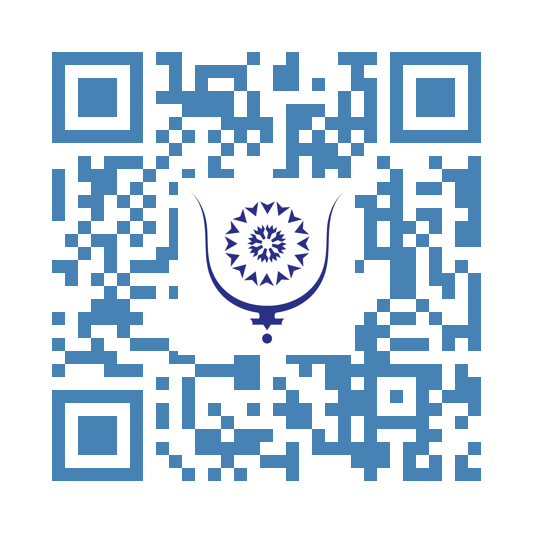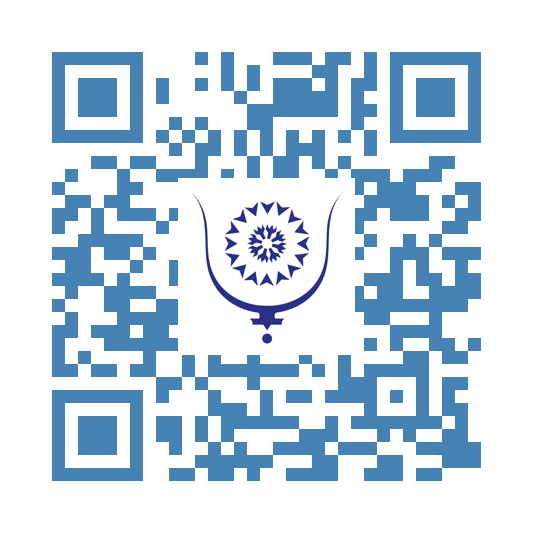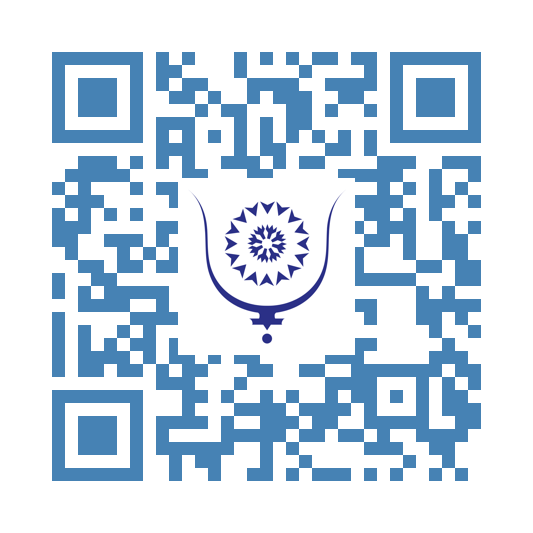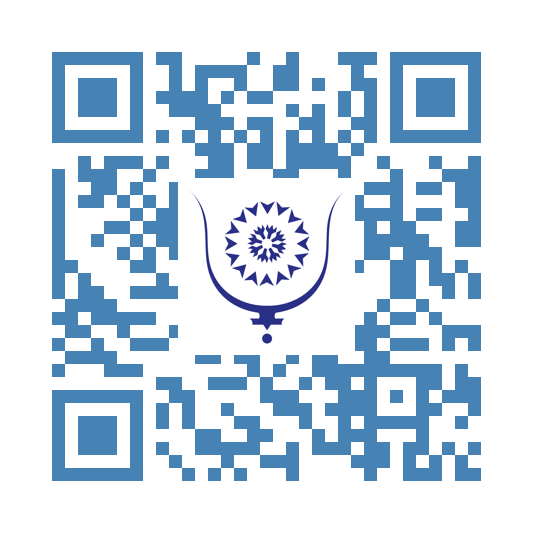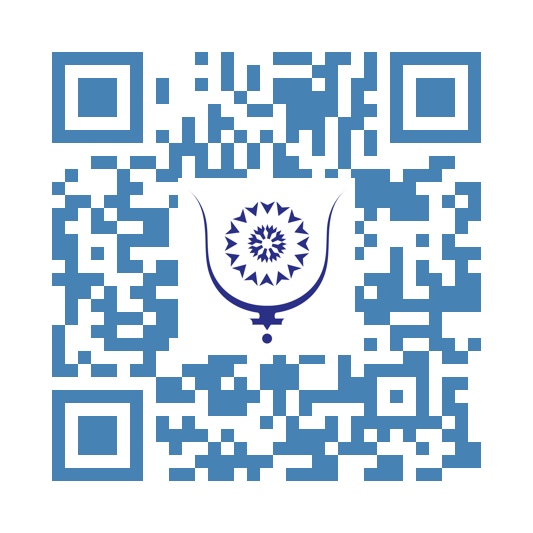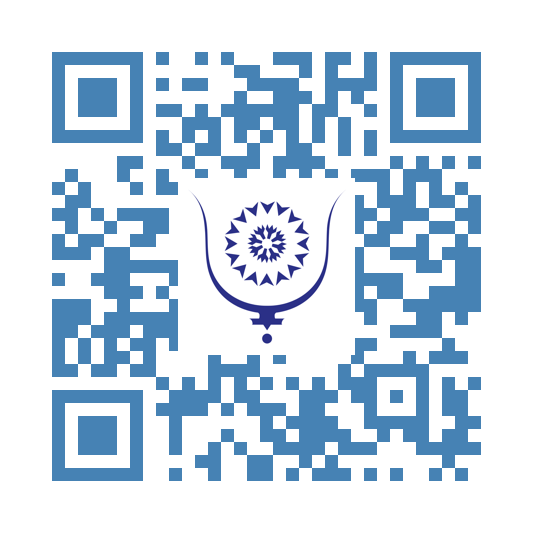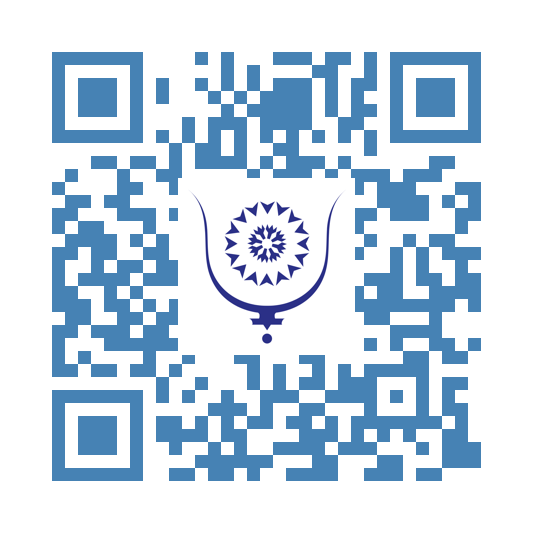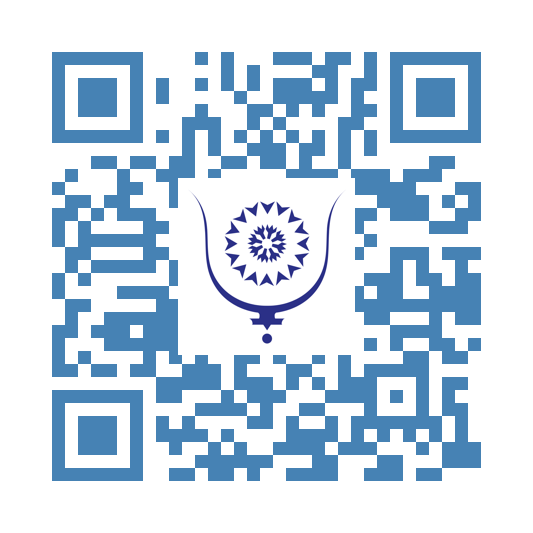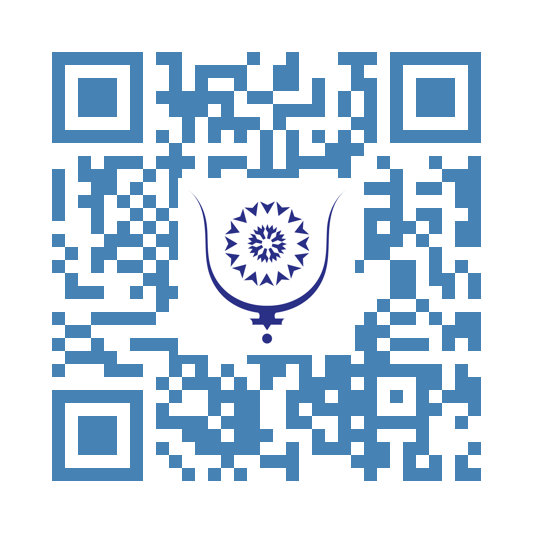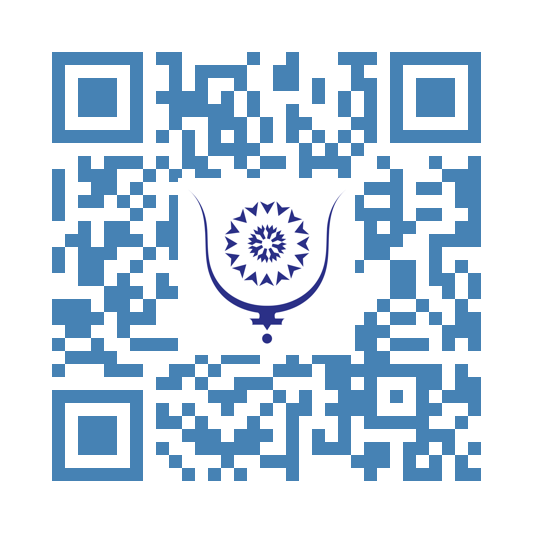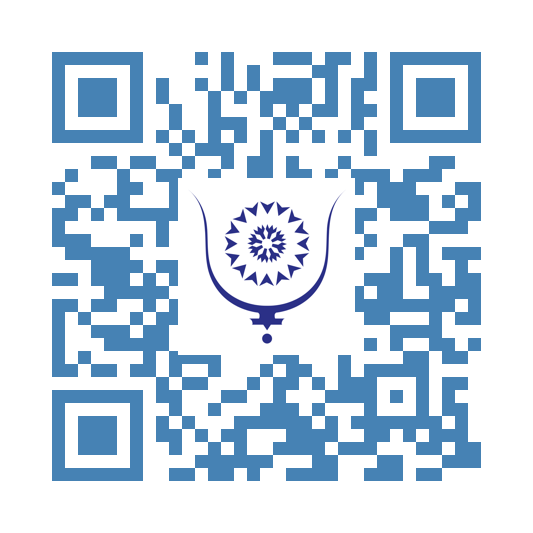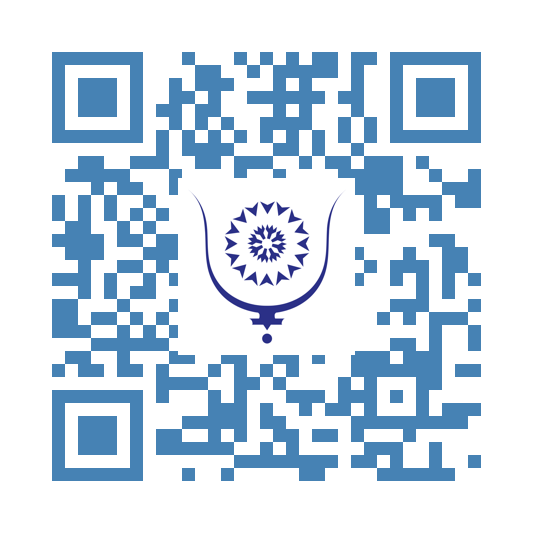It Starts with One Click. It Could Change Your Writing Life.
Picture this: You post your story. Within minutes, thoughtful writers offer ideas. You tweak, improve, and suddenly, you’re growing faster than ever. That journey starts by joining our private Discord now.

Think Forward.
Lazy Developers are the #1 Security issue 144
Open-source used to be the best you could do security wise. Someone, or a small team would start a project about a true unmet need, open-source it on the internet, a community would grow around it. That community would be thousands of people strong, working tirelessly 24/7 to make the project better, while the original team would usually serve as "benevolent dictators".
This means that every line of code is in the open and audited by several dedicated programmers before it is officially released. This is an extraordinary efficient model for development and security, that made open-source software the foundation of the internet and much more. This model gave us Apache, GNU/Linux, Git, ffmpeg, pyTorch, MySQL, ... just to name a few. Without it, there is no modern computer science, there is no modern internet, no modern operating systems, no modern AI.
Of course, it is not a bullet proof system, bad actors still try to exploit bugs and integrate backdoors into open-source software. However, these are identified by the community and promptly corrected at a pace that proprietary software can never match. Hardened security through radical openness. This system worked because it is maintained by passionate people with very high technical knowledge and abilities. These projects are all coded in low-level programming languages (means harder), not high-level scripting languages.
Fast-forward to today, a world dominated by nodesjs and scripting languages in general. Scripting languages like Python and Javascript have allowed many more people to integrate the folds of the "Developers". These languages are orders of magnitude easier to learn, do not require compilation, and due to many technological advancements, are now fast enough to be used in serious applications.
However their massive adoption also had the unintended consequence of lowering security standards in open-source and therefore everywhere. Nodesjs is now for many the preferred way of building "full-stack" applications. One single language for both the backend and the frontend is a very enticing premise. However Javascript, was never meant to be a secure language and more importantly the scripting language came with a lazyness culture. Gone are the days where programmers would fight off to show their skills and understanding of the machine, to see would come up with the most efficient, the most elegant and the most secure code. Now there is often expediency and lack of skill disguised as "efficiency". Why reinvent the wheel, when you can just import a free package (under MIT license) made by someone you don't know. That seemingly wise advise has now created a security nightmare of package dependencies that are impossible to audit.
There are now millions of open-source nodesjs packages. Most of these packages, are not, or very poorly maintained, they don't have sizeable communities supporting them. For most of them their makers have either moved on, or don't have the technical abilities to assess wether some piece of code could produce an exploit that some bad actors could use. These millions of packages all prime targets for bad actors looking for ways to insert backdoors into software used by millions. If an application requires 600MB of dependencies, it is not secure. That number should make any security aware person shudder.
Of course you can sandbox applications, but that is not enough.
Write your own code. Use as little dependencies as you can.
The Emerging Political Maturity of Moroccan Youth: A Legacy of GENZ212 172
The waning of the GENZ212 movement does not signal the end of a generation searching for meaning. It should mark the beginning of the political maturity of a youth until now seen as sidelined or completely uninterested. Between legitimate frustrations, institutional responses, and obvious possibilities of manipulation of which it may be unaware, Moroccan youth is entering a decisive turning point: moving from protest to construction.
Recent decisions by the Council of Ministers to include youth more substantially in political life explain well a fading movement and a generation now questioning itself. The ball is clearly in their court now. They know Morocco will not be made without them and is being made for them.
Born in the digital sphere, GENZ212 ignited social networks and mobilized a youth eager for change. Its energy, initially spontaneous, naive, and sincere, now clashes with reality: lack of a clear, common vision, unclear leadership, and attempts at takeover by opportunistic extremes who saw a golden opportunity and believed it could not be missed.
The momentum quickly weakened, as in any protest based on hollow slogans without clear contours or precise content, but the question remains: what remains of this anger?
The country responded quickly and seriously. The institutional response manifested rapidly. The calm and firmness of the royal speech at the opening of the current Parliament's last legislative session and the 2026 finance bill a few days later redefined priorities around health, education, and social cohesion. Record highs were set for education and health. By integrating youth expectations into public action, the crisis was defused. Morocco, as always, chose listening and reform over confrontation. The trap of manipulation thus quickly closed around these promoters...
In other arenas, some tried to rekindle the flame. The call to boycott the Africa Cup of Nations, for example, illustrates this: presented as a protest gesture, it quickly revealed ambiguities and also some frustration over extremists’ failure. The majority of citizens quickly condemned the boycott promoters, ridiculing them. Many observers concluded it was a political or even geopolitical takeover attempt. The overzealousness of Algerian media in trying to heat up the scene confirms and justifies this suspicion. Some even claim the recent protests are no longer a heartfelt cry but an echo of external agendas. As a result, several young former supporters distanced themselves from the movement. "We wanted change, not to become a tool in invisible hands," say early activists on social media.
Recent innovations encouraging youth to take the political step toward institutions, combined with the historic importance of budgets allocated to health and those planned for education, have shifted the mindset of most young people from protest to building.
As always, rooted in history, faced with drift, the Moroccan state has always favored stability and dialogue. This pragmatic approach continues a deeply rooted tradition: responding to unrest with concrete policies, not empty speeches or sugary promises. Throughout its modern history, the Kingdom has always known the real power of youth is to build, not boycott. Morocco is not undone by despair; it is built through commitment.
GENZ212 served as a revealer, expressing the aspirations of youth wanting to be heard without being manipulated, actors without being instrumentalized, a youth standing up on behalf of their parents and society as a whole. Today, through its calm, it reveals a political consciousness in gestation to which the state wants to contribute by encouraging it to take the step toward representative institutions.
Thus, the anger and demands of this generation will no longer be expressed in the streets or covertly, nor quickly taken over by those who confuse freedom of expression with destabilization. This, of course, while awaiting the day their children will come to shake things up and push them out of their comfort zones, in turn.
In a fragile and uncertain regional context, national cohesion remains the essential bulwark. Moroccan youth seems to have quickly understood and integrated this. A true passage into maturity.
Morocco progresses, sometimes slowly, but surely, combining reform and stability, youth and responsibility.
GENZ212 is not a failure but a step. That of a generation that understands real change does not improvise on social media but inscribes itself in the long term, through action, listening, and participation. Resisting today means refusing to be manipulated. It means building one’s country lucidly, not against it.
Morocco thus enters a new phase where youth becomes consciousness, no longer a force of rupture but an engine of balance.
This is, ultimately, the quiet revolution, a Moroccan evolution throughout its modern history. This is a particularity that only Moroccans can understand: protest, listen, dialogue, respond, combine, project, and envision oneself are the key words. Being Moroccan is a belief. Staying united is a faith. Defending the country is a devotion.
It has been this way for millennia.
Dreams 379
Dreams
Every morning when I wake up
I remember my dream
I think I saw it in my dreams
I'm caught in a fear that eats away at me
And my heart is beating with fear and desire.
Unfortunately, the unfolding of my dreams is unremarkable
A collection of illogical events
All my memories with her fade like autumn leaves
who yield to the caresses of the breeze
And they ended up washing up on the ground wet with my tears
Witnesses of my misfortunes
I sailed against the winds and tides
Looking at the horizon
In search of a country that would inhabit me
But in vain
A kind of forward flight
It doesn't bode well
What memories born in pain
I apprehended happiness
I hoped with glow
I waited patiently
But it's been a long wait
Very long
Feeling the storm approaching
I hung on the mast
And then I landed at the first port of oblivion
I fell into alcohol and its alchemy
And suddenly my dreams resurfaced
I was shaking and not standing there anymore
And nightmares haunt my targeted nights
And replaced my shattered dreams
Dr Fouad Bouchareb
All rights reserved
October 24, 2025
The compagnonnage, a forgotten path for reintegrating young NEETs... 448
If there is a situation requiring a quick, very quick response, it is that of the NEETs. These young people will not just disappear. As they get older, their problems, and therefore ours, will become increasingly difficult to manage and contain. The government must find sustainable solutions to reintegrate these young people who are neither employed nor in education or training, the famous NEET: Not in Employment, Education or Training.
An old path could prove surprisingly modern: le compagnonnage. Inherited from artisanal traditions, this form of direct apprenticeship, which has proven itself throughout our history, has not been abandoned elsewhere. In many European countries, workshop-based learning is a cornerstone of vocational training. The idea should inspire a new Moroccan model of integration and skills transmission, restoring meaning to learning through contact with crafts. Not so long ago, this was the case even for some modern trades: hairdressing, mechanics, and others.
It is time to rethink all this and also to look at what happens elsewhere in countries where childhood and its rights are perfectly protected, but where learning a trade in a workshop is not forbidden, in fact, quite the opposite.
In Switzerland or Germany, the so-called "dual" system combines theoretical teaching and practical experience in a company. It enables young people to acquire a recognized qualification while participating in the productive life of the country. It is, for example, the essential pillar of Swiss excellence in watchmaking.
This learning model values transmission and the accuracy of gestures, and helps keep manual and artisanal professions alive while reducing youth unemployment. Yet today, it is clear that many traditional Moroccan trades are in decline and risk disappearing due to a lack of Maâlems.
Le compagnonnage places the relationship between master and apprentice at the heart of the training, along with mobility between workshops and the creation of masterpieces in which the apprentice proudly participates and sees their efforts realized, with client appreciation being the sole measure of evaluation. Vocational schools cannot offer such an emotional connection to trades. Le compagnonnage values patience, excellence, and pride in one’s craft, values that resonate with Moroccan artisanal culture.
In Morocco, the situation is surprisingly paradoxical. Policies combating child labor have certainly made spectacular progress: the number of working minors has dropped by nearly 94% in twenty years. But the legislation, in its protective zeal, does not clearly distinguish illegal work from supervised apprenticeship.
The result is unequivocal: workshops where knowledge of wood, leather, or metal was once passed on are closing one after another, unable to welcome apprentices without breaking the law, while hundreds of thousands of young people are abandoned to the street and its risks.
This confusion between "exploitation" and "practical training" deprives hundreds of young people today of a genuine path to apprenticeship and weakens an entire sector of the national artisanal heritage. To quickly reclaim this historic force for absorbing NEETs, a revised, flexible legal framework is urgent. Once again, the lesson can come from Europe. International comparisons can offer valuable insight.
In Switzerland, vocational training relies on a true alliance between schools, businesses, and local authorities. Apprenticeship is valued as a path to excellence. Young people have the opportunity and good fortune to alternate between classes and workshop practice. They gain solid experience and obtain a recognized federal certificate. This system ensures rapid integration into the labor market while guaranteeing clear protection for minors and institutional recognition of the apprentice status. The result of this pragmatism is that manual and artisanal trades remain alive and respected.
In Germany, the dual model also combines theoretical training and work-based apprenticeship. It allows young people to enter the workforce early with protected and supervised status. The system is recognized for its ability to prevent youth unemployment and maintain a high level of technical skill, especially in industrial and artisanal trades.
Morocco, by contrast, still struggles to structure this link between apprenticeship and training. Artisanal apprenticeship remains largely informal, subject to restrictive legislation that tends to confuse formative supervision with illegal labor. While protection for minors is generally strong, it remains unclear when it comes to practical training. This results in unequal integration of young people depending on the sector, while many traditional trades that create wealth are now threatened with disappearance due to lack of successors.
The guiding philosophy of the necessary reform today should be the rehabilitation of the Maalem's role.
Fortunately, Morocco still has a priceless asset: its network of master artisans, or Maâlems, guardians of centuries-old traditions in ironwork, jewelry, carpentry, and pottery. Giving these masters a legal and formative place would be a first step toward creating a Moroccan compagnonnage, adapted to local realities and oriented towards modernity. This would require reforming child labor laws to distinguish structured apprenticeship from precarious work and creating institutional bridges between traditional crafts and formal vocational training programs.
This is a future path for young NEETs and these thousands of out-of-school Moroccan youth. Apprenticeship with a Maalem is not a step backward but a modern reinvention of the link between knowledge, work, and dignity. The Maâlems is a master, an educator, a transmitter of strong values.
And let us not forget that this is how Fès was an industrial city, how Marrakech has kept an authenticity giving it its unique charm, how Ouarzazate is Ouarzazate, and how Chefchaouen is Chefchaouen.
Framed by the state, recognized by institutions, and supported by local incentives, this model could help restore hope to a youth searching for meaning, while preserving the heritage trades that form Morocco’s cultural wealth, which sets it apart and makes it strong.
In every apprentice, there is the seed of a good citizen; in every apprentice lies a small or medium enterprise.
He thinks 608
He thinks....
He thinks that in his nailed hands
I'm nothing but a toy.
I don’t think I’ll go back to him.
Today, everything has changed —
As if nothing had ever happened.
And with the innocence of angels from the skies
in the look in his eyes,
He tells me: I am the keeper of this place,
And that I am his one true love.
He brought me flowers.
How could I not accept them?
And all the naivety of youth
I found again in his gentle smile.
I no longer remember... the fire in your eyes.
How did I find myself in his arms?
I laid my head on his chest, proud,
Like a child returned to their father or mother.
Even my long-abandoned dresses
danced at his feet, all of them.
I forgave him… and asked how he had been.
And I cried for hours under his armpit.
And without thinking, I gave him my hand,
So it could sleep like a bird in his.
And I forgot all my hatred in a fraction of a second.
Who said I held a grudge against him?
How many times did I say I’d never return?
And yet I came back.
My return is wonderful.
To my first love.
Dr. Fouad Bouchareb
All rights reserved
Toulouse, May 29, 2025
Managing Science is not a numbers game 624
More people in science does not necessarily mean better results: there is an equilibrium to find, a sweet spot.
There is a fundamental difference between technology, industry and science. In an industrial setting, production is mostly defined by how many units of production you have, and how much ressources are available for production. As long as input ressources are available, you can in theory scale production somewhat geometrically. Double the number of factories, double the output.
Science works differently. Historically groundbreaking scientific discoveries and theories have been made in times of small tight knit communities. The most famous example being the iconic photograph from the Fifth Solvay Conference in 1927, held in Brussels, often referred to as "the most intelligent photo of all time". All the great minds that defined modern physics from relativity to quantum mechanics fit in one single photograph.
In science, instruments are not the means of production, they are the tools used to assess theories. Doubling the money and the people does not imply doubling the output. Science is not about producing stuff it's about producing new ideas.
Science thrives when highly intelligent individuals, extremely passionate about a single topic, get to meet to exchange often and freely over a long period of time. A hyper focused kernel driven by a similar passion. Adding more people dilutes the potential of highly meaningful interactions. That's the first reason why more people can lead to less groundbreaking discoveries. Even if the constituents of that kernel exists, it can never crystallized and reach it's full potential. Too many people to talk to, too many papers to read and too many unaligned objectives.
This also promotes the apparition of dogmatism and "consensus thinking". When there are too many ideas to assess, it is tempting to go with what the majority thinks. However for science, freedom is more important than consensus. Consensus is a political tool used by human beings to govern themselves in matters of opinions. This is irrelevant to science because science is empirical. It doesn't matter how many people think something if it can be demonstrated to be false. Freedom of thought, on the other hand is the essential mechanism that keeps on generating new ideas and points of view. A necessary part of scientific development.
Reform, yes. Imitate, no. Morocco facing the parliamentary illusion... 659
Everywhere it has been adopted, the parliamentary model shows its limits. In Europe, repeated political crises and short-lived governments multiply, fueling citizen disenchantment. In Israel, the succession of elections within a short period illustrates chronic instability. In Great Britain, the Brexit saga revealed the flaws of a system torn between electoral legitimacy and political fragmentation. Everywhere, the logic of fragile coalitions and opportunistic compromises has transformed parliamentarism into a machine of division and a conduit for populism. Wherever parliament fragments, crisis is assured: France is painfully experiencing this today.
Yet it is precisely when parliamentarism is faltering that some question the country’s institutional balance, mentioning it anachronistically as an adequate model! This observation sparks a recurring debate; some circles, seduced by an imported ideal, propose to further “parliamentarize” the political system, or even to further reduce the institutional role of the Sovereign. An alluring proposal at first glance, but dangerously disconnected from national, historical, sociological, and deeply political realities; the institutional balance in Morocco has been forged by history in coherence with geography and demographic data. Morocco is not like other countries, and its people even less so. It is a nation-state marked by a distinct particularism that stands out among many others in the region and beyond.
Since the 2011 Constitution, the country has advanced on a singular trajectory: that of a balanced constitutional monarchy, combining state stability and genuine political pluralism. This subtle articulation between the historical legitimacy of the Throne and the democratic legitimacy of other institutions has allowed the country to avoid the turbulences that have struck many states in the region, with disastrous consequences, it must be said.
Within this framework, the sovereign does not present himself as a partisan actor but as an institutional arbitrator guaranteeing national cohesion and the continuity of ambitious reforms undertaken. Without this moral and political authority of great subtlety, the country risks sinking into the same deadlocks experienced by other fractured parliamentary regimes torn apart by factional quarrels and personal ambitions.
Shifting the debate about systemic weaknesses and imperfections toward this subject dangerously distances one from the true issue: revitalizing and cleansing political life.
Calls for an increased transfer of prerogatives to Parliament often miss the real problem: the weakness of the party system. The ailment of Morocco’s political system does not stem from an excess of monarchical authority but from a deficit of credibility among other political actors. The monarchy has never prevented parties from showing competence, coherence, or boldness. Too often, they have preferred rhetoric over action, abandoning the ground and responsibility.
The challenge thus lies less in weakening royal power than in moralizing public life, enhancing parliamentary oversight, and demanding competence from elected officials. Democracy is measured not only by the formal distribution of powers but by the quality of their exercise and their impact on daily life and the course of history.
Since independence, Morocco's strength lies in an immutable constant: reform without rupture, modernization without renouncing its foundations. This model, sometimes criticized in the name of an imported idealism and an ideology now collapsed after having caused much harm, remains one of the few to reconcile stability, openness, and ambition.
Succumbing to institutional mimicry would be a strategic error in a global context where even great democracies doubt their own mechanisms. The Moroccan people, for the most part, know this. They are even deeply convinced of it. Some even go so far as to demand that all power be concentrated in the hands of the King; a way to loudly express their exasperation with the functioning of institutions they themselves elected. What a paradox it is to vote for people and then call on the King to rid us of them! Surprising, isn’t it? This is the particularism of this nation.
Morocco does not need a regime change but a political and moral awakening. The monarchy, guarantor of continuity, is not an obstacle to Moroccan democracy: it is its backbone. Unity around it is the singularity of this country that has known how to traverse history, faithful to itself. This model is unique and arouses envy of all kinds.
As Hassan II reminded us, democracy has no single definition. Each people must invent its own. This lesson remains strikingly relevant: Morocco will continue its own path, that of a thoughtful balance between authority and participation, tradition and modernity— a balance that is its strength and foundation of its stability.
Morocco advances, and even in great strides. As for the adventurers and political sorcerers’ apprentices: prisoners of their contradictions, illusions, and failures, they will end up stranded on the shores of history. They advance masked by slogans: the communist suddenly becomes a fervent defender of human rights, and the Islamist discovers a democratic vocation. They simply forget that history has already judged them and that models are plentiful, and Moroccans know it. They are not fooled. This is not about those who have already made their mea culpa and repented, of course, but about all the others.
Video Games and Aggression: How Trustworthy Is the Research? 687
"The Effect of Video Game Competition and Violence on Aggressive Behavior" by Adachi and Willoughby (2011) is one of the most frequently cited studies in the literature on video game violence. Its credibility can be partially attributed to the fact that it is published by the American Psychological Association (APA), a highly reputable organization in the field of psychology.
The researchers picked video games with similar levels of difficulty and speed but varying degrees of violence and competitiveness. These four metrics were evaluated in a pilot study in which participants briefly played each game and rated them on a seven-point scale. The researchers then conducted two experiments:
- **Experiment 1:** The violent game chosen was Conan, an action game involving combat with swords and axes, while the nonviolent game was Fuel, a racing game. Both games were considered similarly competitive based on the pilot study. Participants were randomly assigned to play either Conan or Fuel. The experiment aimed to test whether violent content alone would lead to greater aggression after gameplay. The findings showed no significant differences in aggressive behavior between players of the violent and nonviolent games. However, the main concern with this finding is in its measure. The aggression was measured by having participants choose the amount and spiciness of hot sauce to give to another person who dislikes spicy food. A measure that does not fully capture the complexity of what aggressive behavior is.
- **Experiment 2:** They selected 4 games: Mortal Kombat vs DC Universe (Violent and competitive), Left 4 Dead 2 (Violent but less competitive), Fuel (Nonviolent and competitive), and Marble Blast Ultra (Nonviolent and less competitive). The researchers found that competitiveness in video games, rather than violent content, significantly increased "aggressive" behavior. They measured it by having participants compete in a reaction-time button-press game against an opponent. When a player lost a round, the winner had control over the intensity and duration of an unpleasant noise blast delivered to the loser. The participant’s choice of how loud and how long to set the noise blast served as a proxy for aggressive behavior. Blasting the noise could indicate other motivations besides aggression, such as opponent intimidation to win the game, compliance with experimental expectations, or could have to do with the impulse management of the participant. Once again, the measure fails to reflect the multifaceted nature of aggression.
Research papers like these shape the opinions of a significant portion of the public regarding the link between video games and violence, which raises the important question of how well such studies capture the true complexity of aggression and whether their findings should be featured in such reputable journals and directly influence public perception.
You are leaving Bluwr.
We cannot guarantee what's on the other side of this link:
The judge of love 694
Oh you judge of love
Be merciful to me
Don't condemn me until you've listened to me
I am a victim as always
I swear it out loud
She's the one who makes me sing
And play tricks on me
As before and always
And pretends to be up
Mr. Judge Believe Me
And before you say
and to judge me with your law
Remember, yes remember
That you too were mistreated
By your lover many times
And you felt what I feel
Despite your good faith
So be merciful to me
And do me justice for once
Otherwise in your law I will lose my faith
I was what you are, you'll be what I am
Dr Bouchareb Fouad
June 4, 2024
All rights reserved
Demanding citizens, forgetful citizens: the other crisis of our society... 1221
The citizen facing himself: between demands and forgetfulness
In many contemporary societies and undoubtedly in ours as well, a strange trend is strengthening: that of the citizen who demands everything from the State but forgets to ask what he gives back in return. This stance of collective absolution, where responsibilities dissolve into criticism, nurtures a passive citizenship, often outraged but rarely engaged. Many blame the rulers while forgetting that it is we who voted for them and that not voting is in fact a vote for the majorities that are formed.
When something goes wrong: unemployment, insecurity, education, health, the first reaction is often to accuse the State. More benefits, more justice, more transparency are demanded. This is legitimate. But in this claim, it is rare for each person to question their own role: do we pay our taxes properly? Do we respect the laws? Do we truly participate in civic life or do we prefer to leave it to the "others"? A country is not built only by the decisions of those who govern but by the conscious participation of its citizens.
Public discourse often emphasizes rights: right to health, right to education, right to work, right to freedom of expression. But duties: civil, moral, and economic, are frequently forgotten. Yet, claiming a right without fulfilling a duty weakens the social contract. Everyday incivility, such as littering anywhere, cheating on taxes, circumventing rules, undermines society just as much as the major political failures we denounce. Rights are not won without fulfilling duties.
Many denounce corruption as if it came from above, like dirty rain falling on innocent citizens. But the truth is more disturbing: the corrupter and the corrupted often merge in the same person. The merchant who cheats, the driver who slips a bribe to avoid a fine, the parent who seeks favoritism for their child: all participate in the same malaise. To accuse the "system" without recognizing oneself as a part of that system is to refuse to grow. Corruption is internalized and only bothers when one is its victim or when it must be protested, indulging in the taste of populism and nihilism.
We peacefully, passively let ourselves be seduced by the simplistic discourse of populists. They play on anger, frustration, and fear. They provide ready-made scapegoats: the elites, foreigners, institutions. But very few listeners take the time to analyze, verify, and reason. Populism appeals because it relieves: it transforms reflection into emotion. Nihilism offers an even more dangerous pleasure: that of despair. To believe that all is lost, that all is lies, that nothing has meaning is to refuse the effort to think about reality and to participate in change.
Many have a short memory and do not see the progress made, often because they do not bother to compare. Previous generations experienced misery, lack of schools, rudimentary healthcare, and permanent insecurity. Today, despite difficulties, material comfort, infrastructure, and freedoms are incomparable. Looking back is not complacency: it is a duty of lucidity to measure the path traveled.
The era is one of protest without information. Our time is marked by hyper-reactivity. We contest before understanding, comment before knowing. Social networks amplify this impulse: we get outraged faster than we get informed. But an opinion not based on knowledge becomes noise, a nuisance, not a contribution. Criticism, to be legitimate, must be enlightened, supported, and verified.
A responsible citizen does not just complain. He acts, informs himself, engages, and acknowledges both progress and errors. Only under these conditions can a nation evolve without sinking into sterile complaining.
Did not John F. Kennedy say in his inauguration speech on January 20, 1961, his famous phrase, becoming both a personal and political signature: "Ask not what your country can do for you—ask what you can do for your country." This quote was meant to encourage Americans to first consider what they could bring to their country, not the other way around. The phrase highlights civic duty and personal responsibility within the nation framework and is perfectly transposable to us in these times.
Apparently, John Kennedy was actually inspired by an older phrase spoken by a school principal in his childhood, who would say about a school called alma mater: "The youth who loves his alma mater will always ask not 'What can she do for me?' but 'What can I do for her?'" Kennedy might have replaced "alma mater" with "country" to make this patriotic motto. It raises the question of how many school principals are capable of such reflection and commitment to inspire our youth and make them aware of their duties before talking to them about their rights.
Today, if the need is to formulate a new social pact to bring us all together around the same goal of moving forward and making our country even stronger, it is also appropriate to work on rephrasing a patriotic pact as it was the case at our independence or after the glorious Green March, recalling at every moment, with every breath, our motto Dieu, la Patrie, Le Roi. It is thus that all our demands will be heard, that our rights will be realized, that corruption will disappear, and that social peace will be forever established.
Palace of the Kasbah 1499
Malaga, Palace of the Kasbah
Each time I wander there,
a strange phenomenon occurs
it seems I can hear the murmur of another age,
an extraordinary idyll,
from a past not so distant,
suddenly extinguished,
leaving a feeling of the unfinished,
of an era that left its mark,
of which Arabs and Moors still speak,
and nearly every spirit recalls
those of noble souls
and proud Iberian Spaniards.
In the gardens, I seem to hear melodious songs,
of lovers and beloveds
sharing cups of wine,
pure juice of the vine,
and mugs of beer,
behind stone walls
as if it were yesterday
sole witnesses of a past they hold dear,
hidden from the envious eyes of pawns,
to the great dismay of spies and the curious.
Suddenly rises the voice of a singer,
sweet and marvelous,
healing the wounds of every broken heart
that no physician, however wise,
had ever managed to cure.
O Andalusia, land of a glorious past,
of wondrous tales and shining episodes!
The Palace of the Kasbah still stands proud,
rising high through time,
faithful to its noble heritage,
awaiting the resurrection of its Caliph
and his courtiers.
Dr. Fouad Bouchareb
The Palace of the Kasbah
Malaga, September 16, 2022
All rights reserved
And if taxation became the key to our solutions in response to the anger of young people in Morocco? 1562
At the end of September 2025, many young Moroccans protested everywhere to demand social justice, educational reforms, better access to healthcare, and the fight against corruption. This unprecedented movement, driven by Generation Z through the GenZ 212 collective, expressed deep distress in the face of precariousness, high unemployment reaching around 35% among 15-24 year olds, and a feeling of social injustice with millions of NEETs.
This was predictable: recent inflation rates, the widespread decline in purchasing power, the pressure on street vendors who were suddenly targeted for eradication, some hastily decided measures linked to the Africa Cup of Nations and the World Cup could not remain without reaction from the population, and it was the youth who carried it. Projects that were supposed to unite us have in fact divided us.
In response to this mobilization, everyone awaited attentively the speech of His Majesty King Mohammed VI on Friday, October 10, at the constitutional opening of the parliamentary session. It was the last speech before these parliamentarians. The next one in Parliament will be delivered in front of other parliamentarians of our choosing as well. We were all hanging on the Sovereign’s words, his tone, his gestures. The paternal serenity of the king reassured us from the first moments of his appearance.
In perfect continuity with the Throne speech, the Sovereign insisted on responsibility and dialogue within institutions. He emphasized the importance of unity, stability, transparency, and social justice, and recalled the need for urgent reforms both in perception and structure, to build a united and prosperous Morocco.
The line is drawn and the course specified: Morocco must become an emerging country and reach a GDP of 300 billion USD as soon as possible, benefiting the entire population and all regions of the country. The anger is perceived intelligently with serenity, and a clear response: based on major achievements, Morocco is embarking on a new era in its development, a more inclusive era that relies on the specificities and strengths of each region. The speech actually calls for a patriotic pact with the commitment of all. A pact in which projects do not collide but complement each other for the benefit of the people.
Thus, the parliamentary session is launched and will tackle the finance bill, and it is the responsibility of the elected representatives to debate it. In the current context and to respond to royal directives, deputies as well as the government must think outside the box and debate constructively, certainly partisan but in the interest of the whole nation.
In this context, taxation can become a more effective and better-adapted tool to the period we are going through and to each region. It must no longer be perceived or felt as a burden or merely a collection tool but as a strategic lever capable of supporting economic and social solutions. Too often reduced to tax collection to finance public spending, it can and must become an engine of growth, investment, and employment, particularly to meet the expectations of young people. It must become a lever for development and fairness.
Among other things, it will be necessary to question the progressive tax reform between 2023 and 2026, which is debated, particularly with the rise of the corporate tax rate (IS) for small and medium-sized enterprises (SMEs). For SMEs whose net taxable profit is less than or equal to 300,000 dirhams, the IS rate increased from 12.5% in 2023 to 17.5% in 2025, and will reach 20% in 2026. This reform aimed to adjust taxation while stimulating economic growth but raises questions about the real impact on SMEs and their capacity to invest and create jobs essential for Moroccan youth. It must be emphasized that SMEs create the most jobs in Morocco, just after the informal sector. The government, which wanted to create jobs, blocked this momentum, including by this poorly timed reform. On the contrary, SMEs which employ the most should benefit from significant tax deductions to help them grow.
Internationally, several countries show that lightened taxation favors competitiveness and attracts investments, such as Ireland with a general IS rate of 12.5%. The Moroccan fiscal framework must be readjusted to stimulate growth and strengthen social justice while ensuring sufficient public revenues.
The challenge in Morocco is to adopt taxation that supports economic recovery while responding to the youth's aspirations for more fairness. This requires joint commitment from the government and parliament to design a transparent, fair tax policy adapted to the reality of SMEs, informal entrepreneurs, and young workers. Taxation that leaves maximum purchasing power to citizens, thus stimulating the true engine of growth: domestic demand. A VAT of 20% does not do this.
Integrating informal activities through taxation adapted to their size would allow valuing these actors as genuine entrepreneurs in the making, thus contributing to the formalization of the economy without crushing their capacities. A street vendor is actually the bearer of an SME project. How many success stories have been forged from precarious activities? Certainly, all this must be organized and regulated, but how does a young person starting a small business disturb us? The space belongs to everyone, including youth launching their own ventures without bothering anyone. Banning them makes bitter avengers ready for anything, while we are unable to offer them alternatives.
In this period of social tensions and hopes for a better Morocco, taxation can become a powerful lever for economic transformation. It must be rethought not as a brake, but as a tool for collective emancipation. Deputies and ministers should read Ibn Khaldoun on this subject.
Making taxation a factor of redistribution through prosperity, serving citizens and especially youth, is a path to explore to build a fairer, stronger Morocco capable of meeting tomorrow’s challenges.
Moreover, promoting national successes in all fields, from entrepreneurship to sports to culture, is essential to nurture the pride and ambition of young Moroccans. The exemplary achievements of our compatriots should be mandatorily taught in schools to inspire curiosity, admiration, and serve as examples through work and innovation.
Love! 1947
Love!
(Inspired by Jalal Eddine Rumi)
Love is destiny.
We hardly ever choose the moment to love;
It happens one evening… or one morning.
It comes by pure chance,
Leaving you confused and dazed.
The day you expect it the least,
You never saw it coming from afar.
It strikes in the blink of an eye,
Without an appointment,
It makes you gentle,
It makes you lose your reason.
It makes you flee your home.
Like fire, it burns with passion.
Love at first sight is common—
Each will have their share, their portion.
Without logic…
Yet it’s beautiful, despite all we endure.
It’s a pure feeling,
When it is sincere.
It’s magic,
It’s fantastic.
Despite its pains and sorrows,
Its sleepless nights until dawn,
It is life’s elixir,
Ecstasy without end.
It comes to you as if by magic,
Lifting you away from everything,
Besieging you from everywhere,
Taking over your soul…
And driving you mad, sooner or later!
Dr. Fouad Bouchareb
El Médano / Tenerife
August 24, 2025
All rights reserved
